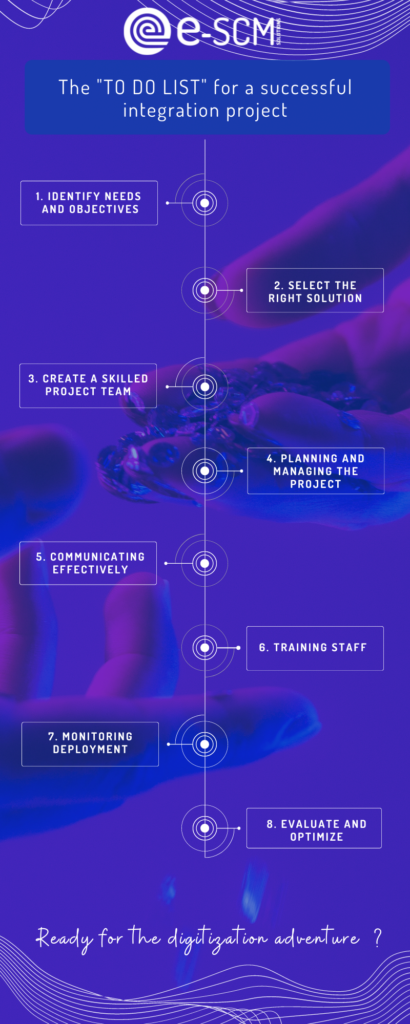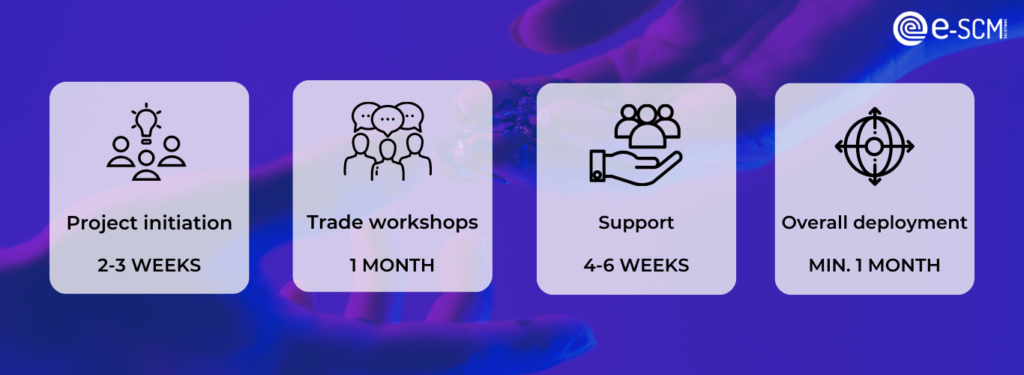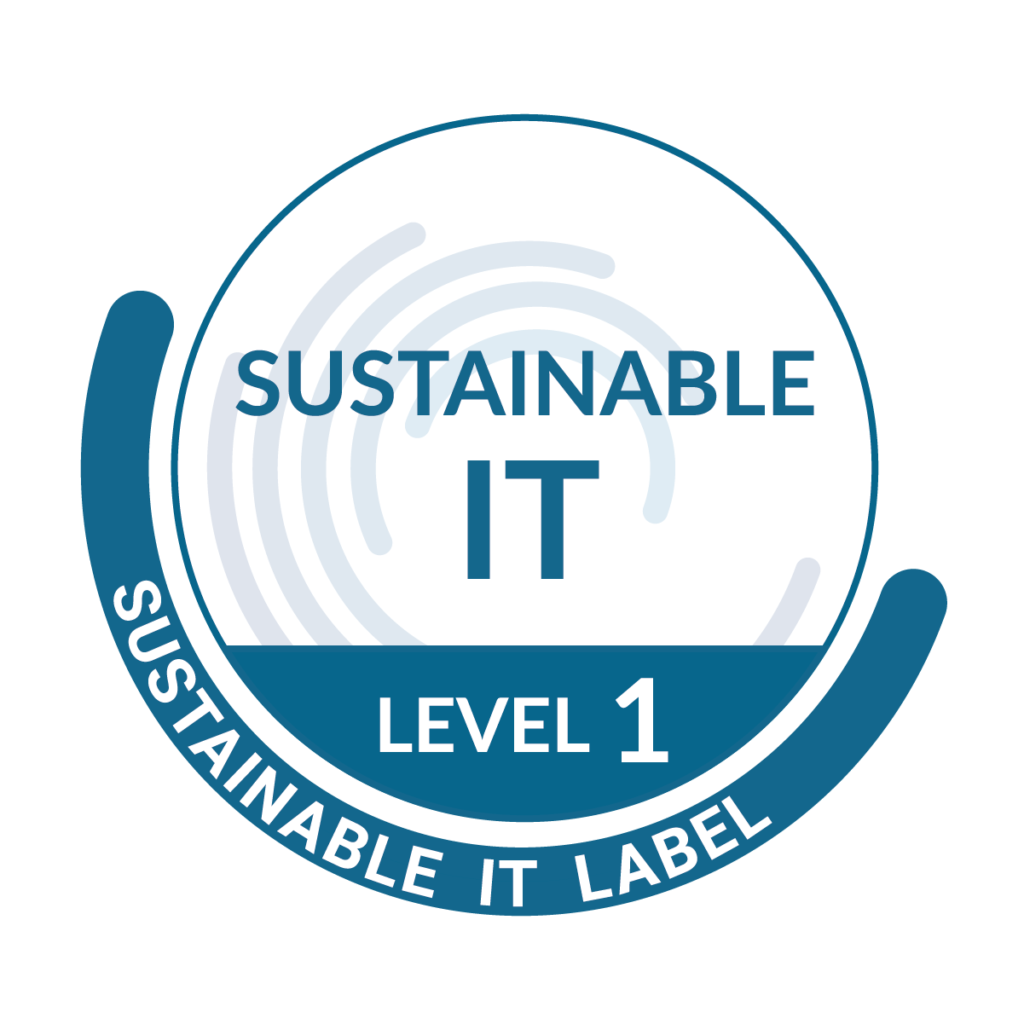The success of a supply chain management solution integration project and the change management require planning and a methodical approach.
How to succeed in your integration project?

1. Assess needs and goals
It is important to start by clearly defining your needs and the objectives to achieve for your supply chain process. You will be able to identify current problems and gaps in the existing system to determine the functionality needed for the desired solution and the capabilities required.
2. Select the right solution
You will begin a phase of in-depth research into the different solutions available on the market and evaluate them according to your specific needs. You will consider features, compatibility with your existing IT infrastructure, vendor reputation, customer support, and associated costs.
You will be faced with a multitude of solution publishers and the choice must be focused on your sector of activity. So, it is essential to speak with a specialized editor whose expertise relates to the fashion and luxury sector. Knowledge of the fashion and luxury sector is not enough, it is also necessary to find a certain supply chain business expertise. By combining the two expertises, profession and sector, you will have an answer that is closest to your objectives.
For this phase, you can be supported by a consulting firm whose help will be invaluable.
3. Build a competent project team
You will need to establish a multidisciplinary team including members of your company, technical experts and representatives of different stakeholders. Make sure you have key managers to oversee and coordinate the different phases of the project.
4. Plan and manage the project
It is advisable to develop a detailed project plan by identifying tasks, deadlines, required resources and responsibilities. Be sure to include testing and validation steps to ensure the quality of the solution. Use project management tools to track progress and manage potential risks.
5. Communicate effectively
Change management requires clear and regular communication with all project stakeholders. Explain the reasons for the change, the expected benefits and the impacts on daily operations. Involve relevant people from the start and encourage their active participation.
6. Train staff
Ensure that all key users of the supply chain solution receive adequate training. You will be able to organize personalized training sessions for different roles
and responsibilities, and provide additional resources to support users during the transition.
7. Manage the deployment
It is best to have a phased approach to deploying the solution, starting with limited pilot testing before expanding. Results will need to be carefully monitored, potential problems identified and adjustments made as necessary.
8. Evaluate and optimize
Once the supply chain solution is integrated, you can regularly evaluate its performance and identify areas for improvement. Collect user feedback and make adjustments as necessary to maximize benefits and operational efficiency.
Our e-SCM team, specialized in the Fashion & Luxury sector, knows how to answer the questions and challenges of the sector with more than 17 years of experience with our clients such as Rip Curl, Eden Park, Petit Bateau and Hummel...
The e-SCM allows a project to be deployed in 3 to 5 months. We focus on change management to modernize existing processes and translate them through the configuration of the solution.
◌ The implementation of the project is studied according to different technical, functional, organizational or strategic criteria
◌ We organize workshops based on a “standard” implementation of e-SCM which allows us to illustrate all of the concepts implemented in the solution
◌ At the same time, real data from system extractions feeds the platform to begin process modeling. The interfaces used to synchronize the different environments are then built.
◌ Customer teams are trained in the solution and then pass on the skills to suppliers. Our teams support the “Key Users” even after the solution has been put into production.
◌ The first deployment can be carried out on a limited scope of suppliers and then be extended to all of your partners.
An e-SCM project allows “Professionals” to modernize their operational processes without impacting management systems.

It is important to specify that Belharra is a company on a human scale with a corporate culture based on expertise and commitment to projects. We have a pragmatic and flexible approach to projects, allowing us to adapt to our clients' organizations and meet complex functional challenges as well as large-scale deployments.
Although we strive to respect the rules and roles governing a Project Quality Plan , we are also aware that the best solutions emerge from collaboration , where ideas cross and everyone's objectives and constraints are shared. It is for these reasons that we promote collective intelligence.
We attach great importance to professional complicity , trust and communication within teams, because these elements greatly contribute to the success of our projects.
By choosing the e-SCM team as part of your supply chain digitalization project, you put the chances of success on your side!
